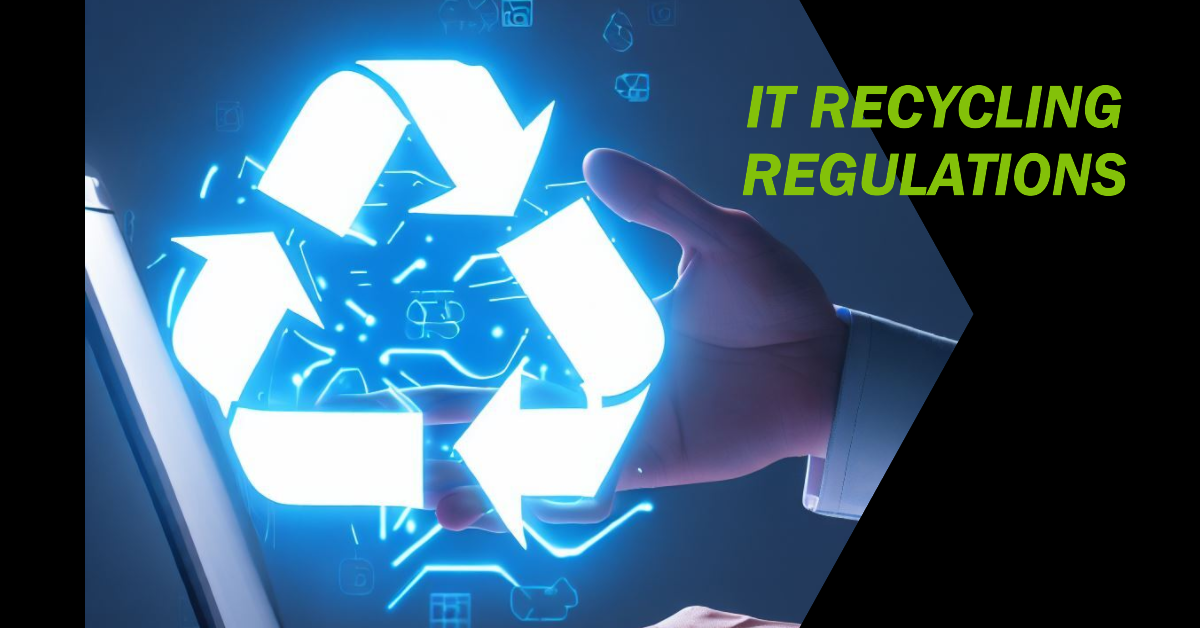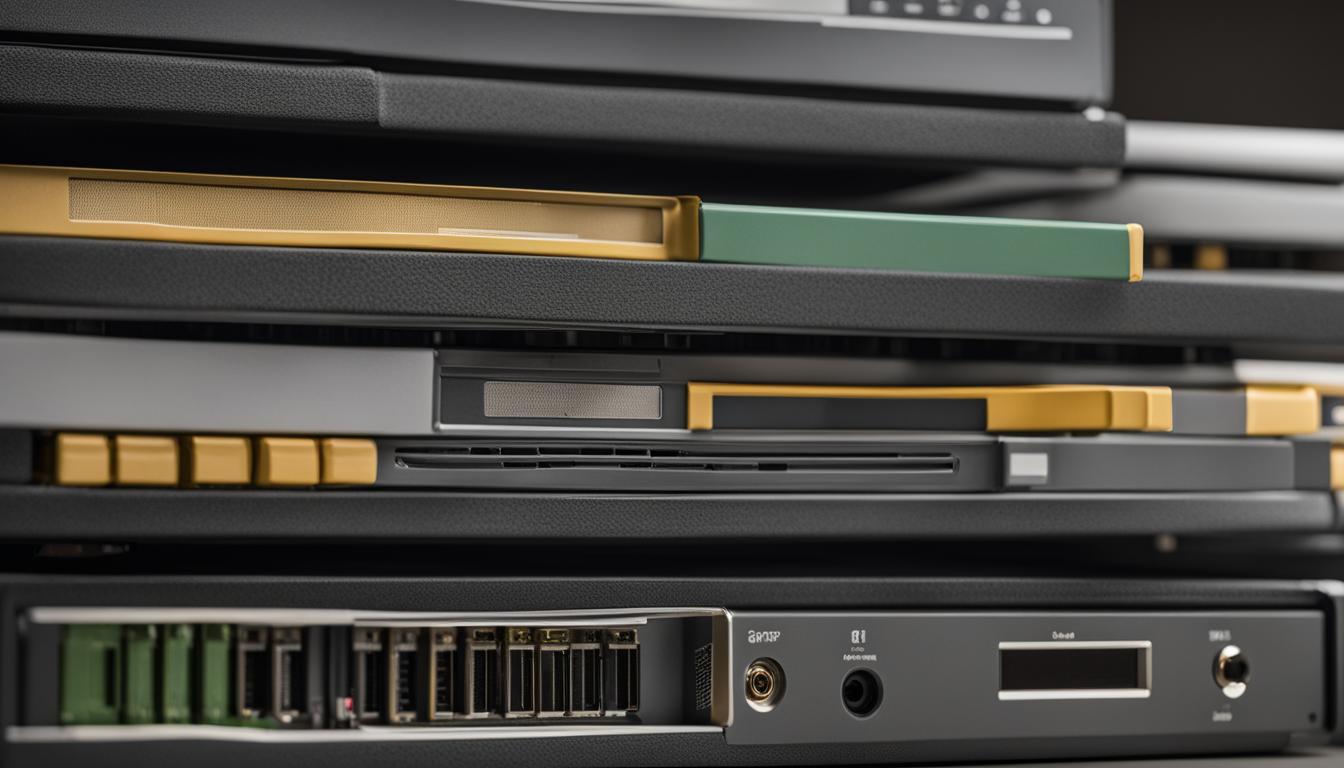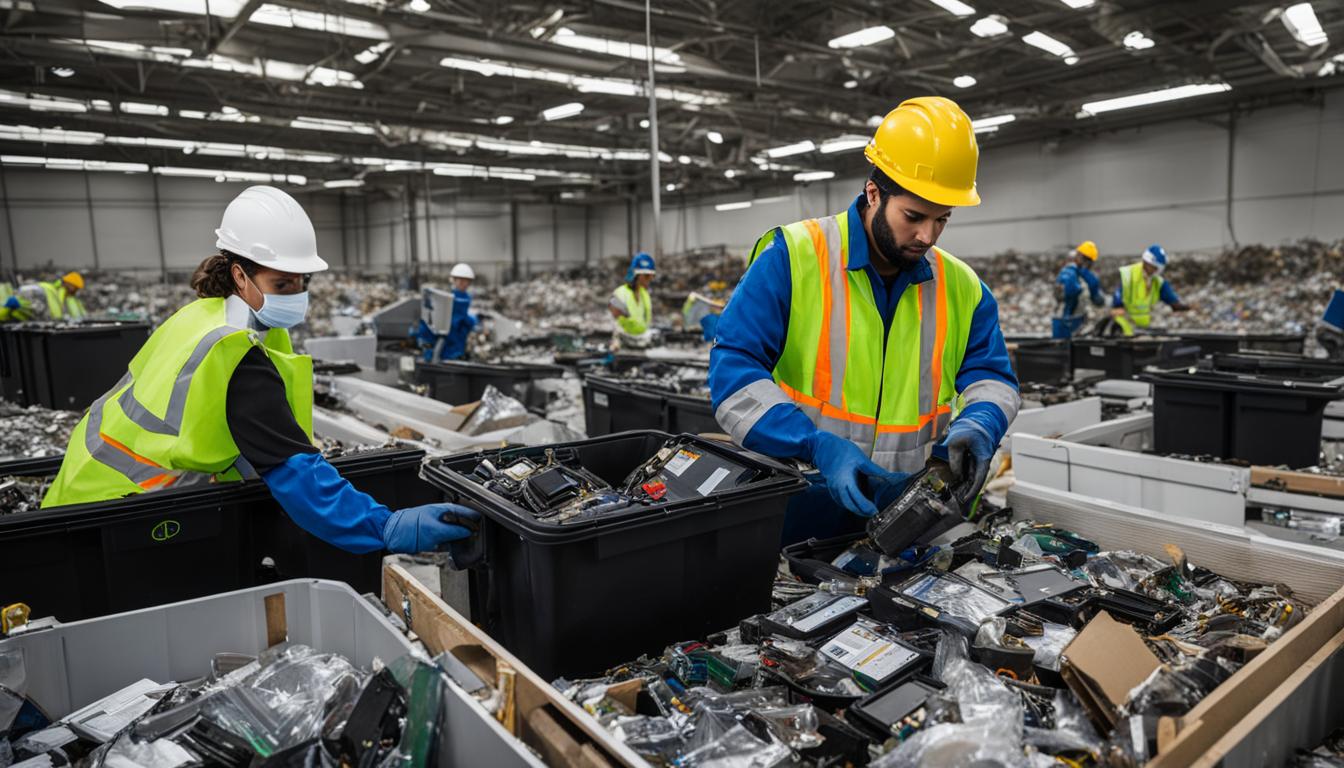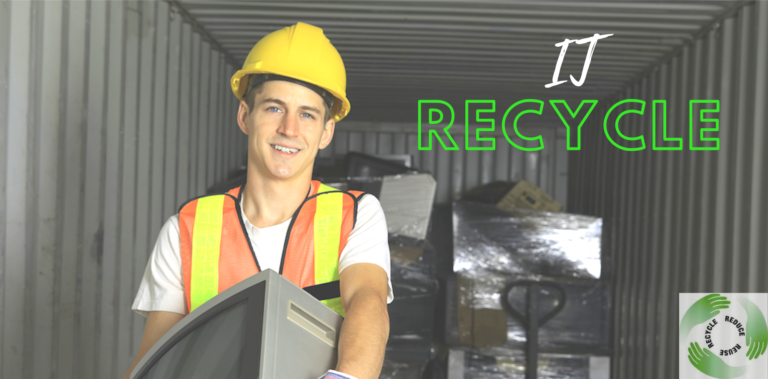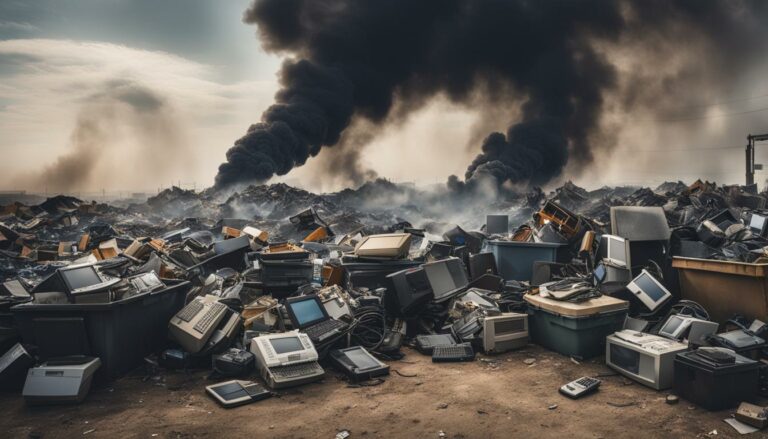IT Recycling Regulations: What You Need to Know.
In today’s digital age, IT equipment has become an integral part of our daily lives, both personally and professionally. However, the rapid pace of technological advancements often leads to a high turnover of these devices, contributing to a growing problem of electronic waste. This is where the importance of IT Recycling Regulations in the UK comes into play.
Understanding the regulations surrounding IT recycling is not just a legal necessity but also a moral obligation. In the UK, specific laws and guidelines govern how IT equipment should be recycled or disposed of, aiming to minimize environmental impact and ensure data security. Ignorance or non-compliance can result in severe penalties, making it crucial for both individuals and organizations to be well-informed.
This article aims to provide a comprehensive guide on IT Recycling Regulations in the UK, covering everything from the key laws and compliance agencies to best practices for secure and responsible recycling. Whether you’re a business owner, an IT manager, or a concerned citizen, this article will equip you with the knowledge you need to navigate the complexities of IT recycling regulations effectively.
Importance of IT Recycling Regulations
Environmental Impact
One of the most pressing reasons for stringent IT Recycling Regulations in the UK is the environmental impact of improper disposal. Electronic waste often contains hazardous materials like lead, mercury, and cadmium, which can leach into the soil and water, causing long-term damage to ecosystems. By adhering to recycling regulations, we can mitigate these risks and contribute to a more sustainable future.
Data Security
Another crucial aspect is data security. IT equipment often contains sensitive information that could be exploited if not properly destroyed. Regulations ensure that data is wiped clean or destroyed before recycling or disposal, protecting both individual privacy and corporate data. This is not just an ethical obligation but a legal requirement under the UK’s Data Protection Act.
Economic Benefits
Lastly, proper IT recycling can also have economic benefits. By reusing and recycling materials, we reduce the need for new raw materials, thereby conserving resources and energy. This not only helps the environment but also creates jobs and fosters a circular economy, where waste is minimized, and value is maximized.
IT Recycling Regulations in the UK
The WEEE Regulations
Overview and Purpose
The Waste Electrical and Electronic Equipment (WEEE) Regulations are a cornerstone of IT Recycling Regulations in the UK. These regulations aim to reduce the amount of electronic waste that ends up in landfills or is incinerated. Instead, the focus is on the recovery, reuse, and recycling of products and components. The WEEE Regulations are part of the broader UK legislation enacted in 2013 and amended subsequently.
How It Affects Businesses and Individuals
For businesses, compliance with WEEE Regulations is mandatory. This includes manufacturers, importers, and distributors who place electronic equipment on the UK market. Failure to comply can result in severe penalties. Businesses are required to register as a producer, and depending on the volume of electronic equipment they place on the market, they may need to join a producer compliance scheme (PCS).
Individuals are also affected by these regulations, albeit indirectly. Retailers are required to offer free take-back services for electronic waste, making it easier for consumers to recycle their old devices responsibly.
Data Protection Act
Importance of Data Security in IT Recycling
Data security is a paramount concern when it comes to IT recycling. The Data Protection Act in the UK stipulates that organizations must ensure the secure handling, storage, and disposal of personal data. When recycling IT equipment, it’s crucial to wipe or destroy all data securely to prevent unauthorized access and potential legal consequences.
Guidelines for Secure Data Destruction
The Data Protection Act provides specific guidelines for secure data destruction. This may include methods like degaussing, physical destruction, or using certified data wiping software. These measures aim to make data recovery impossible, thereby safeguarding individual privacy and corporate data security.
Environmental Protection Act
Regulations on Hazardous Waste
The Environmental Protection Act plays a significant role in IT recycling regulations in the UK, particularly concerning hazardous waste. IT equipment often contains materials like lead, mercury, and cadmium, which are harmful to both the environment and human health. The Act provides guidelines on how such waste should be handled, stored, and disposed of.
Compliance Requirements for Businesses
Businesses are required to adhere to the Environmental Protection Act when recycling IT equipment. This includes proper waste segregation, using certified waste carriers, and maintaining accurate records for auditing purposes. Non-compliance can result in hefty fines and legal repercussions.
Compliance Agencies in the UK
Environment Agency
The Environment Agency is a non-departmental public body in England, sponsored by the Department for Environment, Food & Rural Affairs. It plays a crucial role in enforcing recycling duties and ensuring that businesses and individuals comply with the Waste Electrical and Electronic Equipment (WEEE) Regulations. Persistent non-compliance can result in fines of up to £10,000 or an unlimited fine upon conviction.
Scottish Environment Protection Agency
The Scottish Environment Protection Agency (SEPA) is responsible for enforcing recycling duties in Scotland. The Waste (Scotland) Regulations 2012 require all waste producers to take reasonable steps to present key dry recyclables such as glass, metals, plastics, paper, and card for separate collection. Non-compliance can result in severe penalties.
Northern Ireland Environment Agency
The Northern Ireland Environment Agency (NIEA) is an Executive Agency within the Department of Agriculture, Environment and Rural Affairs. Its primary purpose is to protect and enhance Northern Ireland’s environment, including waste management. The agency focuses on ensuring a compliant, crime-free waste sector among its key priorities.
EU Regulations and Their Impact on the UK
EU WEEE Directive
The Waste Electrical and Electronic Equipment (WEEE) Directive is an EU legislative act that aims to reduce the amount of electronic waste produced and encourage recycling. Before Brexit, the UK was bound by this directive, which set collection, recycling, and recovery targets for electrical goods. The directive also imposed responsibilities on producers and distributors to finance the costs of waste management.
How Brexit Affects IT Recycling Regulations in the UK
Brexit has led to some changes in how the UK approaches IT recycling regulations. While the UK has retained most of the EU’s environmental laws, including the WEEE Directive, it now has the freedom to diverge from EU standards. This could mean stricter or more lenient regulations in the future, depending on the direction the UK government decides to take. Businesses and individuals should stay updated on any changes to ensure continued compliance with UK-specific regulations.
IT Recycling Regulations: Compliance and Legal Consequences
Penalties for Non-Compliance in the UK
Failure to comply with IT recycling regulations in the UK can result in severe penalties. These may include fines, legal action, and even imprisonment in extreme cases. For instance, under the WEEE Regulations, persistent non-compliance can result in fines of up to £10,000 or an unlimited fine upon conviction. Businesses may also face reputational damage, which can have long-term consequences.
Legal Cases and Examples
There have been several legal cases in the UK involving companies that failed to comply with IT recycling regulations. These cases serve as cautionary tales, highlighting the importance of adhering to the law. For example, a company was fined £40,000 for failing to meet its recycling obligations under the WEEE Regulations. Another case involved a fine of £15,000 for improper disposal of hazardous waste from electronic equipment.
Importance of Due Diligence
Due diligence is crucial when it comes to IT recycling compliance. Companies should regularly review their waste management practices, ensure proper data destruction, and keep accurate records for auditing purposes. Implementing a robust compliance program can help mitigate risks and ensure that the company stays within the bounds of the law.
Best Practices for Compliance in the UK
Data Wiping
One of the most critical steps in IT recycling is data wiping. Before disposing of or recycling any IT equipment, it’s essential to ensure that all data is securely wiped to prevent unauthorized access. This not only protects sensitive information but also helps companies comply with data protection laws. Various software tools are available that can perform secure data wiping, adhering to standards such as the U.S. Department of Defense’s DoD 5220.22-M.
Using Certified Recyclers
To ensure compliance with IT recycling regulations, it’s advisable to use certified recyclers. These are organizations that have been audited and certified by regulatory bodies for their compliance with environmental laws and data protection standards. Using a certified recycler can provide peace of mind and reduce the risk of legal complications.
Documentation and Record-Keeping
Proper documentation and record-keeping are vital for demonstrating compliance with IT recycling regulations. Companies should maintain records of the IT equipment they dispose of, the methods used for data destruction, and the certified recyclers they work with. These records can be crucial during audits and can help protect the company in case of legal issues.
Conclusion: Navigating IT Recycling Regulations in the UK
Summary of Key Points
This article has covered various aspects of IT recycling regulations and compliance in the UK. We delved into the Data Protection Act, the Environmental Protection Act, and the roles of different compliance agencies. We also discussed the impact of EU regulations, particularly the WEEE Directive, and how Brexit could affect IT recycling in the UK. Lastly, we explored best practices for compliance, emphasizing the importance of data wiping, using certified recyclers, and maintaining proper documentation.
Call to Action for Compliance in the UK
In light of the stringent regulations and potential legal consequences, it’s crucial for businesses and individuals in the UK to take IT recycling seriously. Due diligence and adherence to best practices can go a long way in ensuring compliance. We strongly encourage you to review your current waste management practices, consult with certified recyclers, and stay updated on the latest regulations to mitigate risks and contribute to a more sustainable future.

